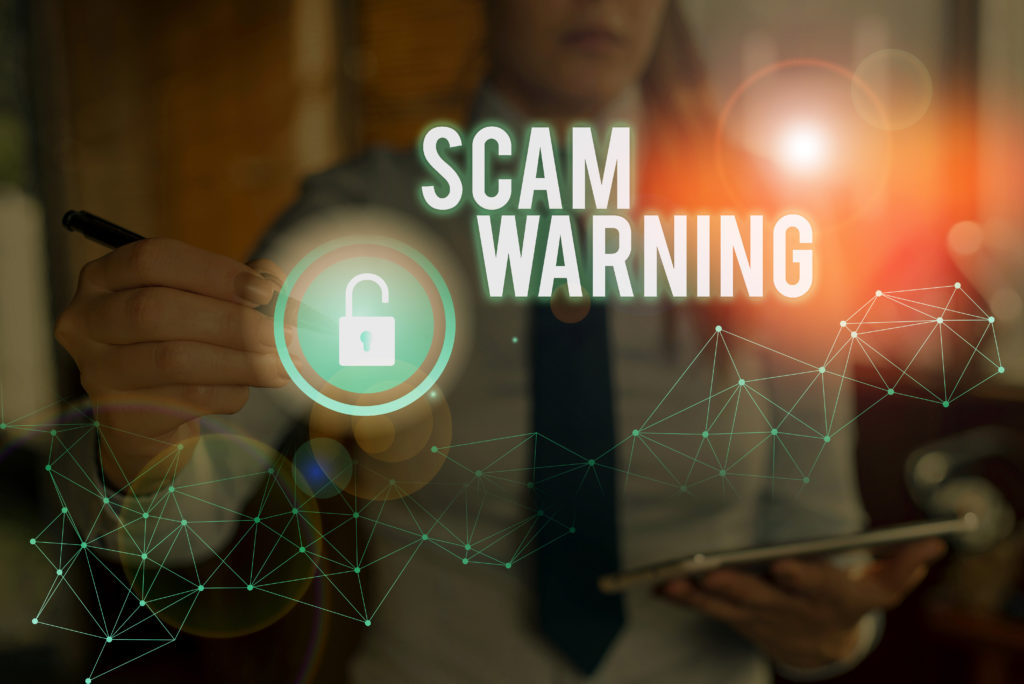Avoid Tax Season Scams!

Avoid Tax Season Scams
Updated 03 29 21. It’s that time of year again, when thousands of people are conned out of money by “tax season” scammers. Most of us like to think we are too savvy to be scammed, but these scam artists sound very convincing, and if you don’t know what to look for, you could easily be taken advantage of by one of these con artists. There are numerous approaches scammers use, but here we will discuss The IRS-Impersonator Phone Scam.
Most Common Tax Scam
This kind of con is probably the most common tax scam every year. It starts with someone receiving a call from someone claiming to be an IRS employee. The scammer then shares their name and an IRS ID number, both of which are fake. They usually already know some info about the person they are calling and will ask them to verify that information. These scammers can even make their caller ID appear as though it’s from the IRS. Usually, the caller will explain that you owe the IRS money and ask for immediate payment. If it seems as though you do not intend to comply, they will begin making serious threats, including possible jail time for you. This is quite ironic as jail is where they will land when they get caught.
Other Tax Scams
Another tactic scammers use is also by phone, when you answer they inform you of a “tax refund”, in an effort to persuade you to share personal information. The scammers will then use your sensitive information for illegal purposes, i.e. stealing your identity or your tax refund, or both.
How to Know When you are Being Scammed
So how do you know if a phone call is really from the IRS? Firstly, the IRS will not call anyone to ask for immediate payment over the phone. That is not the procedure they follow.
Secondly, they will not call you at all unless they have first contacted you by mail. The IRS will not ask for your personal information and they certainly won’t make threats regarding law enforcement and arrests.
Never give your personal information over the phone to anyone claiming to be from the IRS and avoid being among the many who will end up victims of scam artists this tax season. The official IRS website contains additional advice one should share with anyone that thinks they might have been contacted by a fake IRS representative.
We hope you found this article about tax season scams helpful. If you have questions or need expert tax or family office advice that’s refreshingly objective (we never sell investments), please contact us or visit our Family office page or our home page www.GROCO.com. Unfortunately, we no longer give advice to other tax professionals gratis. Considerately yours, GROCO, GROCO Tax, GROCO Technology, GROCO Advisory Services, GROCO Consulting Services, GROCO Relationship Services, GROCO Family Office Wealth, Family Office Services, GROCO Consulting/Advisory Services.
How Hal Kellman Averages a 20% Return on the Market
Interview Transcript, How Hal Kellman Averages a 20% Return on the Market Introduction to How Hal Averages a 20% Return on the Market Alan Welcome back. I’m here today with how Kelman the Cameron family office and how welcome to today’s show. Thank you. So hopefully the listeners, can you get the background of how…
Happiness in the Workplace
About Mike Duffy: Happiness is more than a state of being, for Mike Duffy, it’s a passion. Listen as Mike shares an acronym that he’s made up to help you achieve happiness in the workplace. Mike Duffy is an evangelist for happiness. Mike has written 4 books on happiness including, The Happiness Book For Men.…
Triple Platinum Voice | Lori Glori
Episode Transcript of: Triple Platinum Voice | Lori Glori Alan Olsen: Welcome back. I’m here today with Laurie glory. She is a songwriter, producer and entertainer of several inspirational Christian music, music, and welcome to the show. Lori Glori: Thank you for having me. Alan Olsen: So Laurie, give me your back on how did…
The Skills Your Future (and current) Employer want you to have
The Skills Your Future (and current) Employer want you to have Do you ever wonder what skills your current employer or future employer wants you to have? Ensuring that you have the right skills can be the difference between a promotion or a pink slip. Many of the top skills and attributes would not be…




